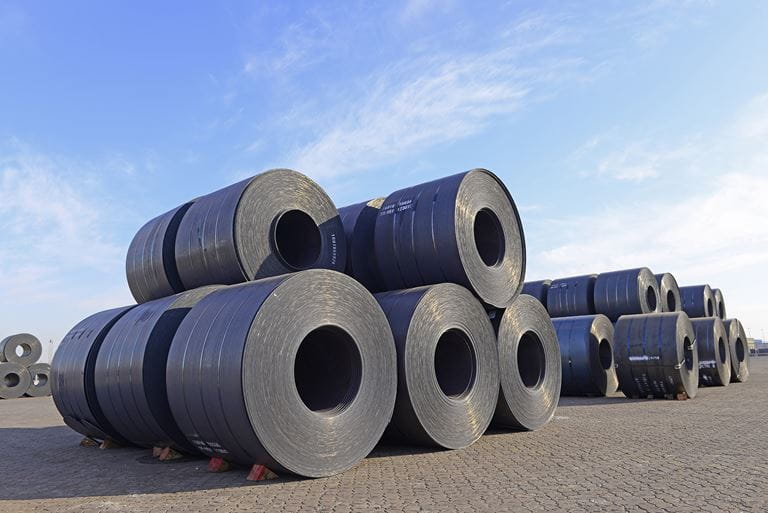The first January-June hot-rolled coil (HRC) contracts for the automotive supply chain have been concluded above €800/t.
Cold-rollers and service centres reported doing deals at around €820/t, down by around €180/t from the settlements for July-December this year. Some are still in negotiations and aiming for a larger decline of around €220/t.
Some mills have also offered six-month deals direct to automakers, as opposed to the typical 12-month agreements — it is not clear whether any have shifted their terms, however.
Mills will be likely to use the contracts to try and support spot pricing, to avoid a large gap between the two — given the increasing volatility in the market, there is regularly a large delta between spot and contract prices.
In the spot market, north European HRC prices firmed further today as mills pushed offers to €700/t and above, and service centres continued to restock.
Argus‘ daily northwest EU HRC index rose by €15.50/t to €673.50/t.
One German service centre said it has booked so much January-March volume for the general industry segment that stocks are likely to stretch out for the first half of the year.
Service centres have restocked in the past fortnight in anticipation of more meaningful production cuts going into next year, and as they expect firmer automotive demand. One German producer said it is booked out until March — probably at reduced run rates — because of brisker demand from domestic carmakers.
An Indian producer sold 13,000t of HRC into Antwerp at $660/t cfr yesterday, probably for a few service centres, sources said.
A north European producer that is typically not very active in the spot market was again the most aggressive, with one service centre receiving offers around €650/t base before it had even countered. One large producer was reportedly offering over €700/t base, but nobody reported paying such levels.
The Argus daily Italian HRC index rose by €8.25/t today to €641.75/t ex-works. Mill offers were at €650-680/t delivered, but in some cases €650-660/t ex-works was the lowest price available. Offers are mostly for February deliveries, and mills are warning buyers they do not have much capacity left.
Imports are not very attractive for many buyers at the moment, despite some deals being concluded over the past 10 days or so at €620-630/t cfr equivalent for the first quarter. With many buyers expecting prices to move higher from EU sellers, these levels would be workable, with several saying they would buy imports at these prices, but most import offers stand higher now.
In the meantime, sheet prices have started to move up too, with service centres still reporting that they are being undercut by mill-linked suppliers or by mills themselves. Yet price targets have been adjusted to a minimum of €720-730/t delivered, and up to €780/t delivered for independent deals for February.
Some SSCs reported today December new orders at a 10-15pc increase on October and November. Their clients are also indicating that they would like to close contracts for the first half of the year instead of only the first quarter — a sign that they are also prepared for further price increases at the start of 2023.
Much of the Italian market will be absent until 9 January — while some production will resume on 2-4 January, commercial activities will only restart in the second week of the new year.

Lora Stoyanova
Send comments and request more information at feedback@argusmedia.com





